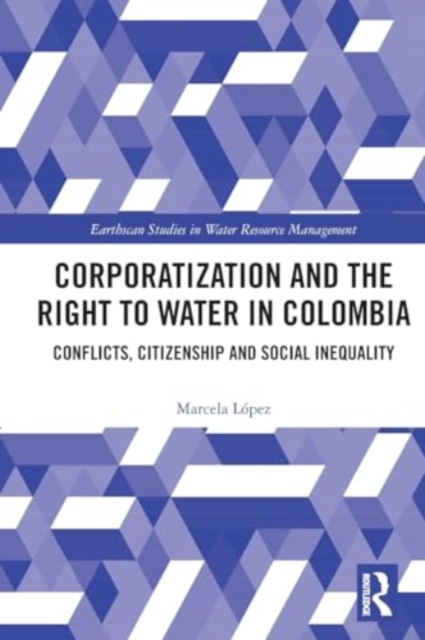
Corporatization and the Right to Water in Colombia : Conflicts, Citizenship and Social Inequality Paperback / softback
by Marcela Lopez
Part of the Earthscan Studies in Water Resource Management series
Paperback / softback
Description
This book explores how conflicts around access to water shape cities, citizenship and infrastructures by tracing how water is commodified and controlled by the Public Enterprises of Medellín (EPM), one of the most successful publicly owned utility companies in the global South. Why are water inequalities dramatically increasing in Medellín, a city that is located in an area of bountiful water resources and owns a successful, established utility company?
This book explains this paradoxical situation by weaving together two central threads.
The first is a critical historical analysis of the political, economic and ecological conditions that enabled the city’s utility company to grow and expand internationally, and the second is a rich account of the everyday practices and struggles of residents in low-income areas to secure access to water and demand citizenship rights.
The EPM is a case of global significance as the company continues to expand its commercial operations in the Latin American services market by taking over the utilities in Panama, El Salvador and Guatemala, Mexico and Chile.
Although its successful international expansion has been a source of pride and admiration for many Colombians, the implementation of market-oriented operating principles in all activities of the utility company raises important and complex questions about its public character and responsibility in the provision of basic services, which has much wider implications given how it is poised to be a model for other for-profit municipal service operations in other Latin American countries.
This book advances the empirical knowledge of corporatized utilities, with a globally significant case, as well as providing new theoretical insights with which to understand the limits, challenges and opportunities faced by public utility companies to provide affordable and equal access to water in cities. This book will be of great interest to students and scholars of water resource management, corporatization, privatisation and commodification of natural resources, urban studies, citizenship and human rights, environmental sociology and Latin American studies.
Information
-
Pre-Order
- Format:Paperback / softback
- Pages:152 pages, 1 Tables, black and white; 3 Line drawings, black and white; 36 Halftones, black and whit
- Publisher:Taylor & Francis Ltd
- Publication Date:27/05/2024
- Category:
- ISBN:9781032129211
Other Formats
- PDF from £35.09
- EPUB from £35.09
- Hardback from £135.00
Information
-
Pre-Order
- Format:Paperback / softback
- Pages:152 pages, 1 Tables, black and white; 3 Line drawings, black and white; 36 Halftones, black and whit
- Publisher:Taylor & Francis Ltd
- Publication Date:27/05/2024
- Category:
- ISBN:9781032129211










